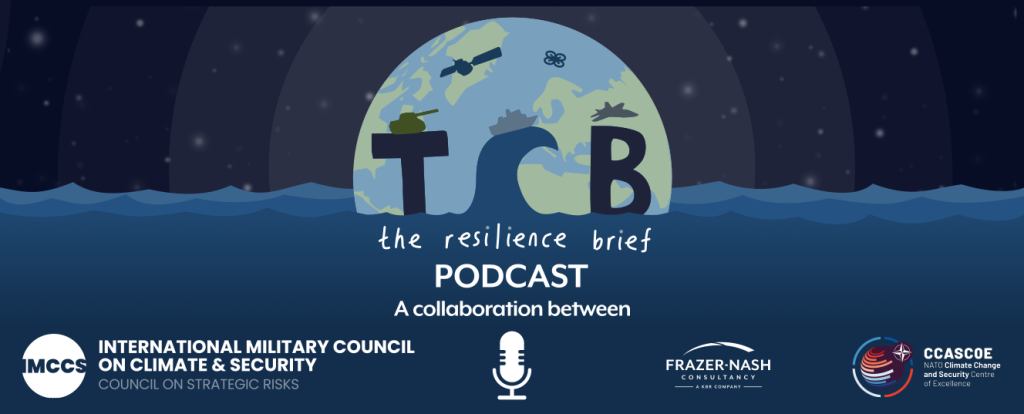The Resilience Brief

In this podcast, expert guests help us to navigate different methods of ensuring battlefield resilience for current and future armed forces.
The threat of climate change to long-term, global security is well publicised. However, current political narratives, financial constraints and short-term threats have combined to leave sustainability initiatives and the area of climate intelligence an unfunded priority within NATO. At the same time, many climate change and sustainability practitioners have struggled to communicate a comprehendible narrative that suits a defence client. In short, prioritisation of traditional battlefield requirements threatens long-term resilience within our Armed Forces.
In the first series of The Resilience Brief podcast, we explore different facets of operational resilience for NATO armed forces. Our hosts, Dr. Sarah Ashbridge (RUSI/CCIP) and Lieutenant Colonel Alistair Beard (British Army), will navigate topics such as the future operating world, interoperability, and technologies, whilst also reflecting on domain specific requirements. Twenty-three leading experts and practitioners will share their insights as to what holds strategic value for the Alliance, and the actions that can help us to improve resilience today.
The Resilience Brief Episodes
Episode 1: Navigating Climate in the Context of Operational Resilience
Episode 2: The Future Operating World
Episode 3: The Interoperability Conundrum
Episode 4: Disaster Mode: Activated
Episode 5: The Ground Truth: Resilience in the Land Domain
Episode 6: In Hot Water: Climate Challenges for Naval Forces
Clarification: In this discussion, “multi-role” refers to a medical ship’s ability to provide a range of medical services. It should not be interpreted as “dual-use” in an operational and humanitarian sense. In an Article V scenario, medical ships cannot be simultaneously deployed for both operational and humanitarian missions.
